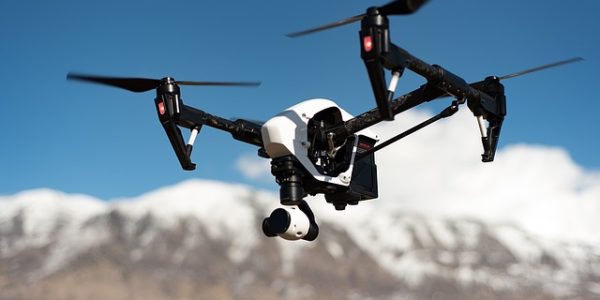We often hear how automation threatens jobs for humans workers. Machines and automated systems are simply better than human workers in a lot of ways. When it comes to manufacturing people simply can’t compete with the speed, efficiency, precision, and affordability of an industrial motion control system or other factory robots. It’s not just industrial robots threatening jobs security, however. Drones could threaten human workers as well.
The drone boom
While the U.S. military started work on unmanned aerial vehicles in the 1950s, and universities have been developing drones ever since, drones as we know them today have just recently become available to the public. But while consumer use of drones is a relatively new thing, drones have exploded in popularity. Anyone can own a drone these days. Drones range from pricey technologically sophisticated aircraft to children’s toys that cost less than $20. Drones are used by law enforcement, military, search and rescue, cinematographers, and casual consumers alike.
A report from last year found that drone sales tripled over a 12-month period. We shouldn’t expect drone sales to dip anytime soon, either. The same report expected drone sales to increase 180% by 2020. In other words, don’t view this whole drone thing as a flash in the pan.
How drones could affect human workers
OK, so drones are popular. You might think that they’re cool, novel, or maybe a little annoying. But how will drones affect jobs?
Delivery
Drones could potentially replace delivery drivers across the board. Drones offer a cheaper, more efficient, and significantly faster alternative to human delivery drivers. Whether you rush pizzas, tote packages, or haul cargo, drones could one day put you out of a job.
Transportation
Autonomous vehicles are already keeping cabbies up at night. It’s conceivable that pilots could be replaced by drones in the near future. The military already uses unmanned drones large enough to fit a passenger, so the technology is already there.
Construction
Tall buildings and hard to access places pose a number of challenges for building and construction workers, whether it’s getting the materials in place or simply getting builders where they need to be. Drones bypass many of these challenges facing construction workers. Drones are already being used for some painting jobs, though they’re not as good at that as human workers are.
Maintenance
Automating maintenance and inspection could save a lot of time money, and help prevent downtime. Drones could patrol routes and examine buildings, infrastructures, and more for needed repairs and maintenance. You might even have a little nanodrone whizzing around your factory carrying out preventative inspections one day.
Drones could also have a positive effect on jobs
It’s easy to focus on job displacement and say that automation is bad for human workers, but it’s not always that simple. Automation doesn’t just remove humans from the workforce. Sometimes automation changes the way that humans work to make us more efficient, and it can even create new jobs. Fro example, a number of schools and universities offer drone pilot programs. We could one day see drone technicians as a viable profession.
The future is looking bright for drones. It could be a while before we see drones performing routine maintenance and preventative inspection on your Indramat system, however. In the meantime, give us a call. We specialize in all things Indramat.
